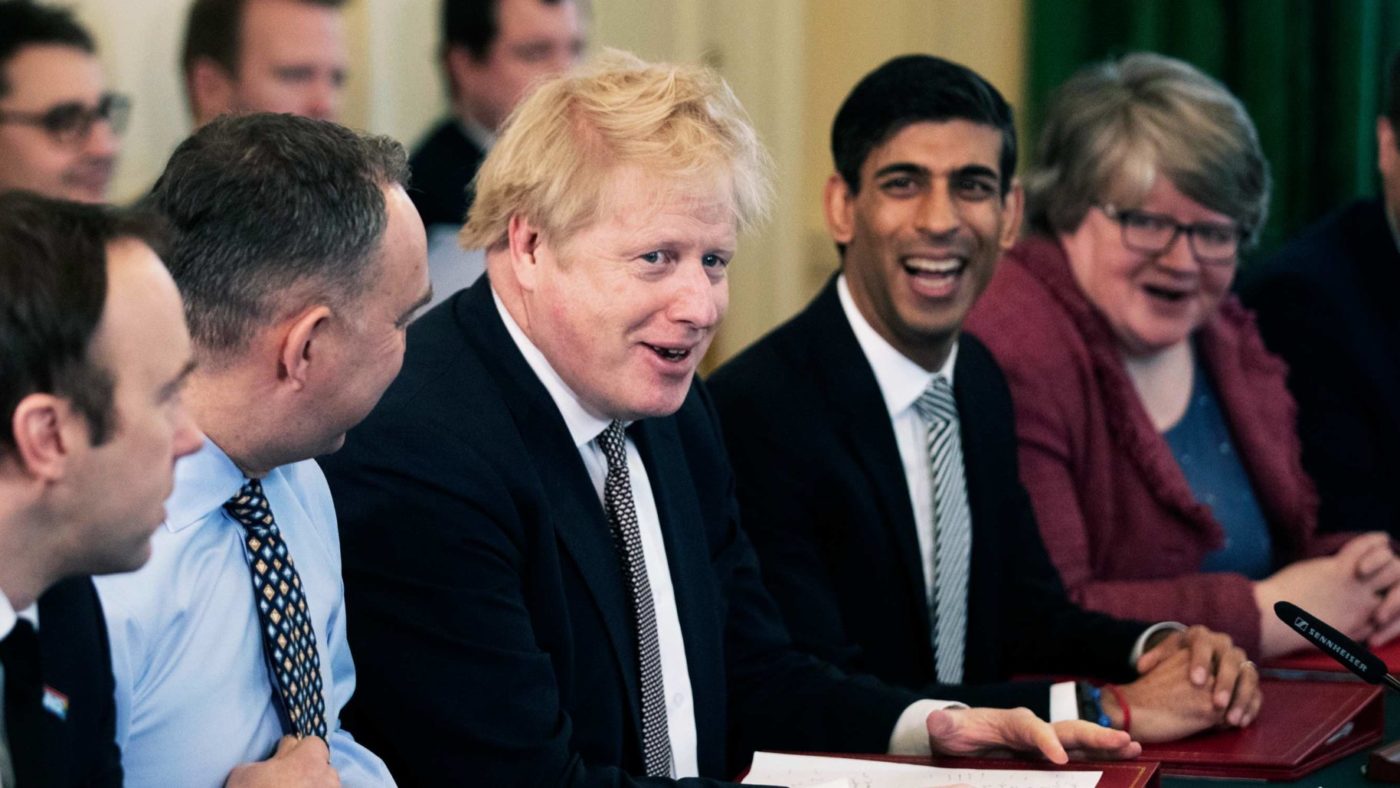In 1954, René Rémond published the first edition of his famous Les Droites en France, an analysis of the evolution of the right wing of French politics from 1815 until the then-present.
Updated in the Sixties, this book was the origin of his classic division of the French right into three distinct traditions: Legitimism, Orléanism, and Bonapartism. As their names suggest, each was born around support for a particular monarchy but outlived it, becoming a relatively coherent ideological or social force in 20th Century politics.
It’s available in English, and well worth a read, not least because it provides an interesting lens through which to view the current debate over what is happening to the Conservative Party under Boris Johnson’s (or perhaps Rishi Sunak’s) leadership.
There is not, to the best of my knowledge, an equivalent to Rémond’s book offering a similar anatomy of the British right (although articles such as this suggest one might be possible). The closest are probably books such as The Conservatives – A History, by Robin Harris. But these tend to tell the story of the institution of the Conservative Party, which is not quite the same thing.
Harris does break capital-C Conservative history up into different epochs defined by different figures (‘Thatcher’s Party’, etc.), but presents them more as a succession than a collection of cohabiting traditions, with each eclipsing the one before it. This reflects the sheer power of the Tory leadership – William Hague once described the party as “an absolute monarchy”, albeit one “moderated by regicide” – coupled with the dominant position the party itself enjoys on the British right.
Perhaps this all-or-nothing perception of the stakes goes some way to explaining the tone of much of commentary on the Tories.
David Gauke, for example, strikes a very forlorn note about the prospects of ‘small-state free-marketeers’ and ‘one-nation social liberals’ under the new order, writing in terms of great finality that “the Conservative Party made its choice” at the 2019 election. Nick Timothy offers the same analysis in somewhat triumphalist terms. And Gauke is far from the first Remain-inclined Tory to write as if Brexit, or some stance of Johnson’s or indeed Theresa May’s, represented a decisive break with the party’s history.
But this feels overstated. For starters, Paul Goodman makes a persuasive case that a strong undercurrent of liberalism connects David Cameron’s somewhat aristocratic and liberal regime with Johnson’s patriotic Caesarism (although I have written before that the generous policy towards Hong Kongers represents a loyalty-based immigration policy which is not intrinsically liberal).
Taking the longer view, it feels somewhat myopic to try and claim that this latest shift represents a more fundamental change of direction than did Thatcherism, or Tory Socialism, or Imperial Preference. The Conservative Party shifts so as to represent one side of whatever the great division facing the country is in any given age. That’s how it has always worked.
This is not a counsel of despair. The wheel turns and will turn again. Margaret Thatcher displaced the ‘One Nation’ tendency but she did not bury it, no more than Cameron’s modernising project killed off the Eurosceptics of the old right. It’s therefore premature to assume that Johnson will sound the death knell of what Gauke calls “traditional, liberal, middle-class Conservatism”, especially if cementing a long-term hold on the ‘Blue Wall’ proves trickier than Downing Street’s strategists might hope.
Advocates of an alternative strategy, however, will need to reckon with the shortcomings of the Cameron electoral project. Whilst Johnson has retained the party’s hold on its new West Country seats, the urban constituencies Cameron won or came close to winning in 2010 started slipping away long before 2019. In many of these seats the Tories are now behind by more than ten thousand votes, and in any event the only majority the old regime eked out is dwarfed by the current one.
With Thatcher’s landslide coalition lost to history and Cameron’s still theoretical, it isn’t difficult to see why the party will be strongly inclined to stick to its new course for the time being.
And with setting up new parties much more difficult than in the somewhat kaleidoscopic French system (the Faragist parties are the only obvious exception), these keepers of the flame will also need to construct the ecosystem of thinktanks and parliamentary groups they’ll need to maintain their coherence outwith the leadership of the Party.
Yet if they can do so, Rémond’s work suggests those Tory tribes currently in exile have every chance both of shaping the current regime and of succeeding it.
Bonapartism – patriotic, populist, plebiscitary – can be an unstable thing once out of its pomp. Gauke, or his heirs, could yet follow in the footsteps of those traditional French rightists who first captured, then gutted, and finally replaced the glittering but ill-managed Second Empire of Napoleon III. No prizes for guessing who his modern counterpart might be.
Click here to subscribe to our daily briefing – the best pieces from CapX and across the web.
CapX depends on the generosity of its readers. If you value what we do, please consider making a donation.


